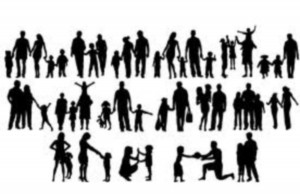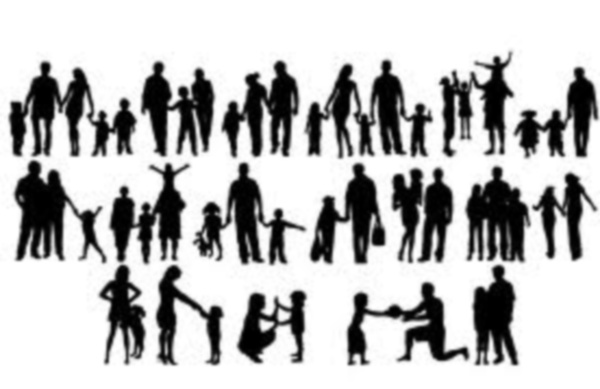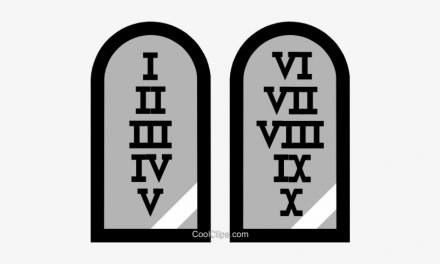While much bioethics discussion about genetic testing occurs in relation to fetal medicine, I worry sometimes that such a focus scares us off from thinking about some of the other significant questions that genetic testing raises. This article from vox.com: Genetic Testing Brings Families Together and Sometimes Tears them Apart raises two questions I think we need to consider in more detail. The article explores one of many home genetic testing companies, called 23andMe.
 The family and ancestry allusions that appear in the title give a clue to the article’s particular concern: families get torn apart by this knowledge sometimes. Actually that makes a lot of sense and is something most of us would probably guess. The family stuff that gets uncovered is what people quite often aren’t prepared for… like the example the article gives of a stem cell and reproductive biologist who discovered that he was related to a half-brother he didn’t know he had, whom his father had conceived prior to his parents’ marriage. His mother and sister weren’t able to handle the information and his parents eventually divorced.
The family and ancestry allusions that appear in the title give a clue to the article’s particular concern: families get torn apart by this knowledge sometimes. Actually that makes a lot of sense and is something most of us would probably guess. The family stuff that gets uncovered is what people quite often aren’t prepared for… like the example the article gives of a stem cell and reproductive biologist who discovered that he was related to a half-brother he didn’t know he had, whom his father had conceived prior to his parents’ marriage. His mother and sister weren’t able to handle the information and his parents eventually divorced.
Maybe that’s simply the fall out of it all. One argument might be made that truth is important, more important than keeping secrets, and if one of the “fallouts” of technology is that truth is known across the land, perhaps this is good. It’s important to note, too, that truth here seems to mean “no secrets or withholding of information of any kind….”
I think this view of truth is quickly becoming popular, especially in our internet age. Edward Snowden’s disclosure of governmental documents might fit the same presumptions about what truth is.
Pursuit of genetic testing and Snowden’s actions, both, may well be the best possible actions we should undertake here; in both cases, I would say that such an answer is not at all clear to me either way. But more to the point, perhaps we should acknowledge at least one key element being lost in this particular view of “truth” and that is, we lose an ability to develop practical wisdom or of exercising rationality and free will in pursuit of virtue, since the answer is always: “disclose.” It limits actions. Consider, for example, what disclosure might mean to the Alzheimer’s patient who feels lost because she thinks it’s 1965 but we know it isn’t and so keep insisting “no withholding” and thus keep fighting an intransigent battle.
Another argument in favor of this view of truth might be deathbed confessions, or other points when people wanted to air the truth. Yet one crucial distinction lies between the chosen death bed confession, which also can wreak havoc, and the situations described in this article, in which people are left particularly unaware of the enormity of the action of “clicking” an internet button. The ease of online technology leads directly to a kind of truth. If we press that button too often, do we start to truncate our understandings of truth and related virtues, like love, hope, and the?
For whether the deathbed confession leads to some good or not, it is also intertwined with questions about how thoughtful the confessing party is in the telling of the story, how important the withheld fact, and so forth. The deathbed confession (or similar kinds of confessions) entails practical wisdom but it is by no means clear that such a virtue is allowed to develop well, or at all, in many contemporary cases involving technologies.
So that is one of the concerns I think we ought to reflect on more deeply and broadly.
A second point this article raises is the relationship between individual and technology, especially in relation to genetic testing. Harvard professor Sheila Jansanoff, cited in the article, observes:
23andMe wants you to imagine their service is individualized: you send your saliva in, they send you your health risks, and you may find out things about yourself you didn’t want to know. They want it to be contractual between you and them.
Yet as she also notes, genetic testing isn’t ever solely about the individual. It implicates past and future, as well as present. It presses particular questions on people. In the case of ancestry searches and so forth, it presses on towards answers for those seeking birth mothers and so on.
As the author pinpoints, however, 23andMe doesn’t aim just to be a family and ancestry genetic site (of which there are many):
[T]here’s one key difference between 23andMe and other direct-to-consumer DNA tests: the other sites are explicitly family ancestry and genealogy sites. People sign up looking for relatives. 23andMe, however, was — until the FDA marketing freeze — the only company that bundles health, ancestry, and genealogy services. It’s still associated with health information, and the company is seeking FDA approval to get its health interpretations back online.
We ought to recall too, then, the ways in which health testing likewise implicates past and future, the decisions we seek to make on behalf of our children, the fact that there are many people whose DNA is a partial match to others, and whose relationships with each other and medical diseases and so forth potentially lay exposed to the world, even though they do NOT make an individual decision that positively assents to such disclosure.
That’s a version of truth too – one that uncomfortably jostles with the social libertarian mindset that seems part of much of our discourse these days. How does the individual person, or the person’s much broader (even vastly unknown) community respond? This, too, requires some practical wisdom and some consideration of our technologies and the ways in which they potentially write our decisions for us, without us quite realizing it.





It may be time for people who think tha truth should always be disclosed to revisit Ibsen’s *The Wild Duck.* The play hinges on the conviction of the central character, Gregers Werle, that it is always better for everyone to know the truth. With this mindset, Gregers discloses who is the true father of the daughter whom Hjalmar Ekdal thinks is his. The result is the girl’s suicide and the destruction of the family.